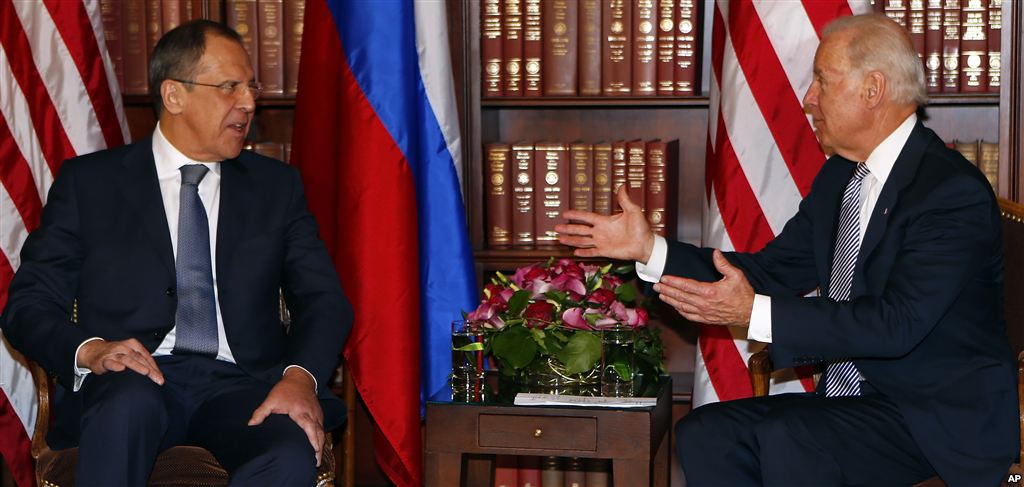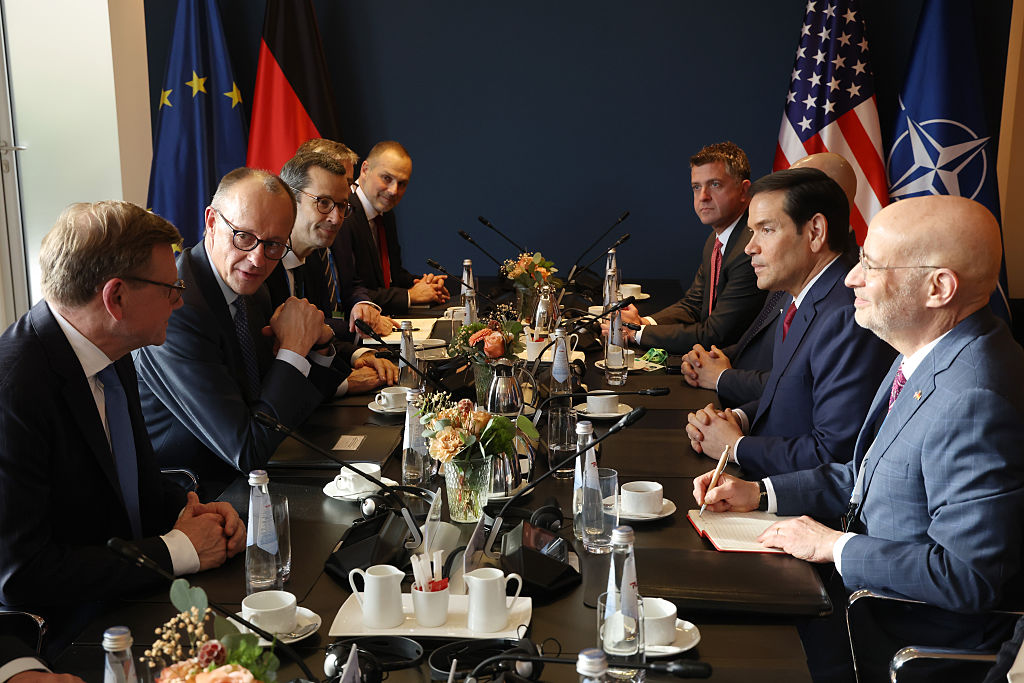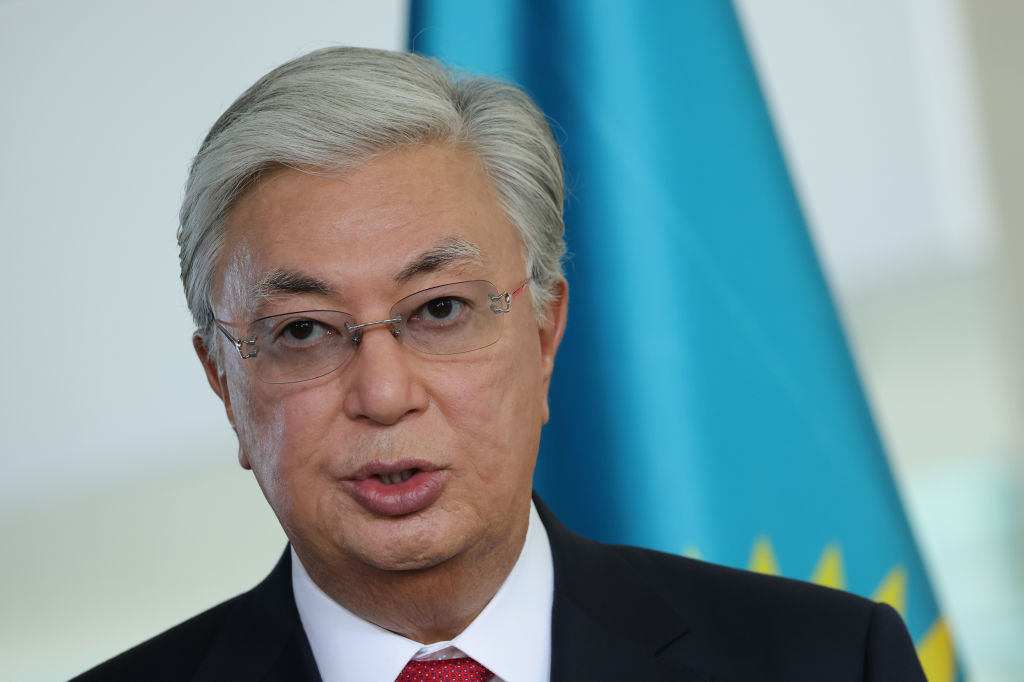
The Munich Shadow over the US-Russian Post-Reset
The Munich Shadow over the US-Russian Post-Reset
The traditional Munich security conference had a particular and very different meaning last weekend for US Vice President Joseph Biden and Russian Foreign Minister Sergei Lavrov, who had an hour-long face-to-face meeting in addition to delivering their keynote speeches. Biden had good reason to be proud of his “reset” policy initiative, presented at that conference in 2009, and he sought to explore new opportunities for keeping the “reset” going without becoming naïve about the depth of current discord (Newsru.com, February 2). Lavrov was instructed to play hard-ball and remonstrate against Western interference in Russia’s domestic affairs in the spirit of the famous “Munich speech” delivered by President Vladimir Putin back in 2007. In particular, the Russian foreign minister was authorized to present the determination of Russia’s counter-revolutionary course in the Syrian civil war, reject any forceful external intervention, and to insist that the Assad regime continues to maintain full control over its arsenal of chemical weapons (RIA Novosti, February 2).
The most productive avenue in the partnership reinvigorated during the first Obama administration was arms control, and there is plenty of unfinished and even untried business in reducing redundant but dangerous armaments. Washington is not discouraged by the expressed lack of interest in Moscow about advancing to a nuclear-free world. Moreover, US National Security Advisor Thomas Donilon is due to deliver new proposals on unblocking the firmly fixed deadlock on the missile defense issue (Grani.ru, January 14). The chances for success, however, appear less than slim—and not only because Putin has developed an unhealthy obsession with the hypothetical US anti-missile “shield,” but also because this deadlock is extremely convenient for blocking any serious negotiations on non-strategic nuclear weapons, which Russian strategists want to keep out of any arms control limitations (Nezavisimoe Voennoe Obozrenie, February 1). Nor is there any intention to re-institute Russia’s participation in the Conventional Forces in Europe (CFE) Treaty, particularly as Defense Minister Sergei Shoigu is so busy with sorting out the military reform process that he was unable to make an international debut at the Munich conference (Ezhednevny Zhurnal, January 31). With no outward signs that Russia is ready to reach a compromise with the United States on arms control, the invitation to President Barack Obama to visit Moscow in summer 2013 is all but senseless (Kommersant, February 1).
If there were expectations for expanding the economic foundation of bilateral relations after Russia’s long-delayed accession to the World Trade Organization (WTO) and the cancellation of the long-irritating Jackson-Vanik Amendment, they have quickly evaporated. The problem is not just that few in the Russian government have bothered to learn what obligations and self-discipline WTO membership actually entails, as the head of Sberbank German Gref recently revealed (RBC Daily, January 18). A deeper problem is the pervasive anti-Americanism inherent in Russian bureaucratic mindsets. Illustratively, US support for Russia’s entry into the WTO was seen as evidence of the harmfulness of free trade for domestic producers (Moscow Echo, February 1). The ban on imports of beef and pork from the United States, under the pretext of “scientific” concerns about the safety of growth stimulant ractopamine, fits perfectly into this “patriotic” mindset (Kommersant, January 31).
The controversial meat ban follows the pattern of curtailing many joint enterprises that constituted the substance of the “reset”: from discontinuing the Nunn-Lugar Cooperative Threat Reduction program to the most recent cancellation of the agreement on cooperation in law enforcement and drug control (Novaya Gazeta, February 1). It was Russia that benefitted most from this agreement, which provided for information exchange and training of specialists, particularly in the Federal Drug Control Service. Russia’s withdrawal from cooperation amounts to Moscow shooting itself in the foot. Motivation for such erratic behavior comes from the desire to prove that Russia is perfectly capable of addressing security risks without US help (Gazeta.ru, January 31). Money may indeed not be a problem, but the experience of the Nunn-Lugar program shows that joint projects tend to have greater accountability and yield better results. Whereas, corruption in Russia’s defense sector has reached such heroic proportions that this year, Transparency International ranked Russia in the same group with Bangladesh and Rwanda (Kommersant, January 29).
It might seem that disagreements between the United States and Russia are technical and issue-specific and that it is only the lack of political will that prevents advancement to a more mature partnership. In reality, however, Putin is not just disappointed in the condescending attitude of his Western peers, but has come to see them as malicious sponsors of a domestic opposition that aims to destabilize and destroy the “legitimate” political order in Russia by revolutionary means. Anti-Americanism is thus not merely a means of mobilizing support among the “patriotic” political base, but a profound feature of the political regime that is retrogressing to uglier forms of authoritarianism. Amid this escalating hostility, it is remarkable to observe that the majority of Russians (estimated by polls at 53 percent) retains a positive attitude toward the US, while the trend in bilateral relations is seen as negative (Levada.ru, January 30).
Returning from Munich, Lavrov expressed his master’s wish that the US not create any more causes for tensions in bilateral relations or “artificial problems” (RIA Novosti, February 2). It might appear to be a hollow warning, but it hints at an answer to the question left out of the diplomatic bickering. Putin knows that one issue of crucial strategic importance to the US is the transit to, and increasingly from Afghanistan, and he is very careful not to waste this trump card prematurely. The new Obama administration is seen in the Kremlin as pragmatic, cautious in advancing the cause of democratic transitions, and keen to keep the “reset”-redux on track (Nezavisimaya Gazeta, January 31). Lavrov may be right in assuming that newly appointed Secretary of State John Kerry is averse to fanning tensions. But Putin is definitely wrong to think the US will perpetually avoid condemning the violations of democratic freedoms that the Kremlin is firmly set to proceed with. President Obama has not yet had his “rendezvous-with-destiny” moment, and the deepening crisis of Putinism may well supply one; the harassed but defiant “white opposition” can count on his readiness to rise to any challenge and his moral resolution to do the right thing.


